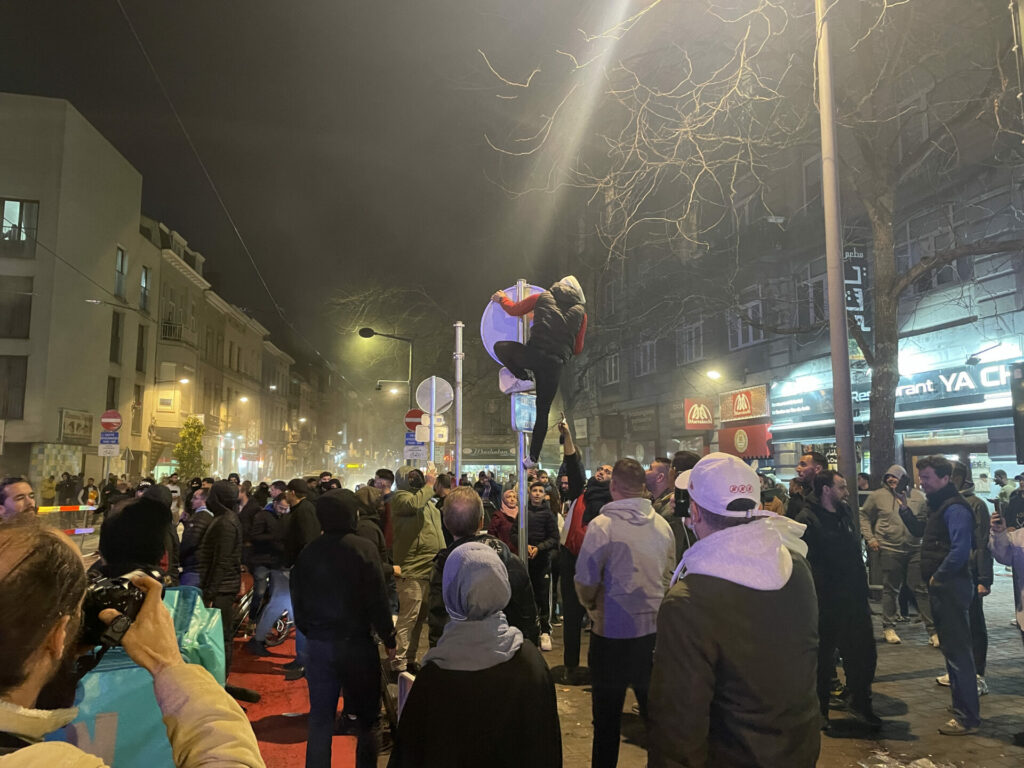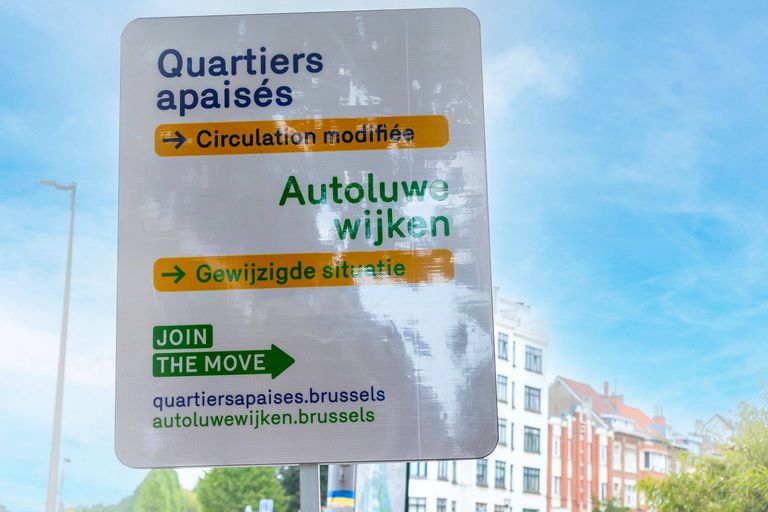The Brussels municipality of Uccle has taken steps to implement its own mobility plan – including more cycling lanes and one-way streets – but is strongly distancing itself from the regional Good Move plan.
Uccle's previous mobility plan, which dates from 2006, is in need of an upgrade, which is why a study bureau was appointed to formulate a series of proposals – which were then used for an action plan.
"About 60% of Uccle households own a car, which is more than the Brussels average of about 50%," mayor Boris Dilliès told BX1, adding that it is "certainly important" to also take into account the 40% who do not own one.
"We want to focus on public transport and emphasise the pedestrian character of our beautiful municipality. That is why we will create and improve many footpaths," he said. The plan includes proposals such as converting some streets into residential areas and making residential zones or footpaths wider and more accessible.
A bicycle more, a car fewer
New cycling infrastructure is also part of the plan, especially at the intersection of Avenue de Messidor and Avenue Brugmann. A bicycle lane in the Avenue de la Floride, marked cycle paths in the Avenue de l'Observatoire and the Rue Jean-Baptiste Labarre, as well as a separate cycle path in the Rue Egide Van Ophem, are also being considered.
"Where we can, we will improve cycling infrastructure," said Dilliès. "A bicycle more means a car fewer, they sometimes say. And that is good for everyone, but we must be able to do that without radicalism."
In the streets where 50 km/h still applies, the speed limit should be reduced to 30 km/h, and more delivery areas should be provided for freight traffic. The study also established that some streets have "particularly busy car traffic" and proposed one-way streets as a solution.
However, this is most likely not going to happen, said Dilliès. "After a citizens' meeting, we understood that the citizens do not want this. This whole thing is a process, we remain open to adjustments."

A protest against the 'Good Move' traffic circulation plan in Schaerbeek, 25 October 2022. Credit: Belga/Nils Quintelier
Last year, protests broke out in several Brussels municipalities – such as Anderlecht and Schaerbeek – after parts of the Good Move mobility plan were introduced. By focusing on citizen participation as much as possible, Dilliès hopes to avoid this in his municipality.
Additionally, he is distancing the Uccle mobility plan from the Good Move one, despite the fact that the different municipalities have been tasked with implementing the regional mobility plan on their territories – taking into account the specific local needs and wishes.
"Each municipality interprets it in its own way. Some municipalities go very far. You will certainly not see the Good Move philosophy in Uccle," he said: no concrete blocks will be placed as a temporary solution, one-way traffic will not be imposed on entire neighbourhoods, and parking spaces will not be scrapped to create cycle paths.
Related News
- Schaerbeek's controversial Good Move plan has positive effect on public transport
- Belgians mostly get around on foot and by car, bicycle continues to rise
- Walking the walk: Brussels residents increasingly get around by foot
"Good Move is not part of the mobility plan in Uccle. For good mobility, one must think of all transport options," he said. "We are not going to penalise one to favour the other."
In the public inquiry that was recently launched, Uccle residents can comment on the plan. While Dilliès himself doubts whether some points will pass, "we decided to keep them in and present them to the public, because it is interesting to let the public decide."
The plan must set out the municipality's mobility vision for the next ten years. At the end of September, the municipal council is set to vote on the plan, with possible amendments from the public.

